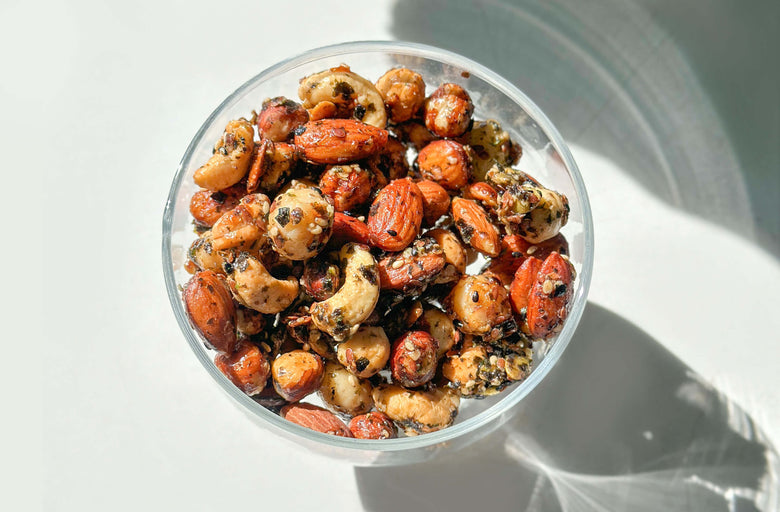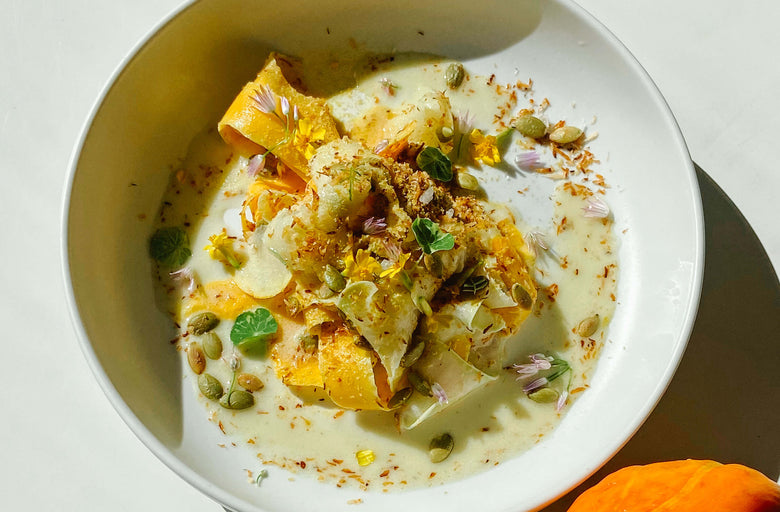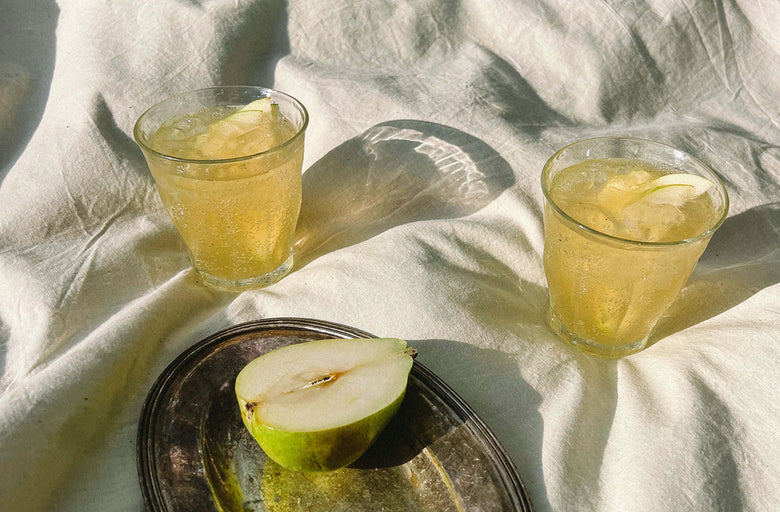You may have heard of the microbiome. But what is it really? Despite the “micro” name, its huge impact on the human body can’t be understated. “Microbiome” refers to the trillions of microbes in and on the human body (with up to five pounds in the gut alone) that influence digestion, nutrient absorption, hormone balance, energy levels, skin clarity, moods, mental health, weight, cravings, immunity, and overall vitality. The gut microbiome is so important that The National Institute of Health has dedicated an entire research initiative to understanding the involvement of microbiota in human health.
THE POWER OF THE MICROBIOME
“To the extent that we are bearers of genetic information, more than 99 percent of it is microbial,” writes Michael Pollan, author of The Omnivore’s Dilemma and In Defense of Food. “It appears increasingly likely that this ‘second genome,’ as it is sometimes called, exerts an influence on our health as great and possibly even greater than the genes we inherit from our parents. But while your inherited genes are more or less fixed, it may be possible to reshape, even cultivate, your second genome.”
The second genome represented by our microbiome accounts for a set of genes and gene products that enhance the activity of our own human genome. Science continues to discover more and more about how the human microbiome causes, contributes to, and modulates health and disease, including conditions that once were thought to be genetically encoded purely by the 23 human chromosomes. Ultimately, the power of our gene expression and long-term well-being may lie more in our own hands (and gut) than in our genetic destiny—meaning that the foods we eat have a direct impact on our vitality.
SUPPORTING OUR MICROBIOMES
Our microbial makeups are similar to our fingerprints in that they're unique to us, but there are steps we can all take to impact and improve our microbiome. There are both commensal (good) and pathogenic (bad) bacteria in our gut—and the good kind thrive on prebiotic fiber, plant diversity, and polyphenols. Probiotics, found in either supplement form or naturally occuring in fermented food, are a critical part of optimizing the gut microbiome, as they work to rebalance the gut environment, flooding the system with more of the good and crowding out the bad.
Eating a diverse, plant-rich diet and taking a high-quality probiotic will help you cultivate a diverse and thriving gut microbiome, thereby improving overall health.
THE BEST FOODS FOR GUT HEALTH
The key to supporting a flourishing microbiome is by opting for plant-rich, whole foods come meal time—filling your plate with leafy greens, lentils, and fiber-rich fruits. Then, next time you hit the grocery store, stock up on all these under-the-radar, microbiome-loving superfoods for an added boost:
- Sunchokes – high in inulin prebiotic fiber
- Jicama – high in inulin prebiotic fiber
- Blueberries – high in polyphenols and gut-nourishing fiber
- Dark chocolate – high in polyphenol-rich cacao
- Turmeric – rich in curcumin, which can beneficially alter gut microbiota
- Coconut kefir – plant-based naturally fermented beverage to reinoculate the gut
- Dandelion greens – high in inulin prebiotic fiber
- Apple cider vinegar – a natural prebiotic that discourages bad bacteria from thriving
- Kimchi, sauerkraut and/or other cultured veggies (unpasteurized) – plant-based, naturally fermented foods to reinoculate the gut.
PROBIOTIC CHEAT SHEET
A plant-based diet goes a long way toward helping you achieve optimal gut health, but an extra dose of probiotics can give your gut the support it needs to truly thrive. Probiotics refer to strains of beneficial bacteria that influence digestion, nutrient absorption, immunity, hormone balance, energy levels, moods, skin clarity, and disease risk.
Daily, high-quality probiotic supplementation (as a pill, like our Complete Probiotic Formula, or a powder, or naturally occurring in food) can help cultivate a healthy and diverse gut microbiome, ensuring the best strains of bacteria are alive and well while crowding out the troublesome, pathogenic ones.
GUIDELINES FOR A GREAT PROBIOTIC
- More is not always better. Instead, ensure your probiotic is high-quality and abundant in clinically studied strains that will benefit your health
- Diverse in multiple compatible strains of bacteria
- Secured in a protective enteric coating on the pills
- Bonus: also have added prebiotic fibers to enhance the ability of probiotics the thrive
OUR COMPLETE PROBIOTIC FORMULA BREAKDOWN
We put a lot of love, care, and science-backed research into formulating our Complete Probiotic Formula and, as a result, ended up with a first-of-its kind probiotic (and one that’s great for on-the-go as it doesn’t require refrigeration). A look at the body-loving bacteria within:
- For women’s health: L. acidophilus
- For regularity: L. casei and L. plantarum
- For mood support + stress relief: L. rhamnosus
- For immune support: L. brevis
- For radiant skin: B. lactis
- For oral health: L. salivarius
- For improved digestion: S. thermophilus and S. boulardii
- For weight management: B. bifidum
- For G.I. comfort: B. coagulans
*Bonus: Added prebiotic fiber (like FOS, alfalfa, and amla) to support your thriving microbiome and digestive enzymes (from papaya juice) to optimize digestion.






